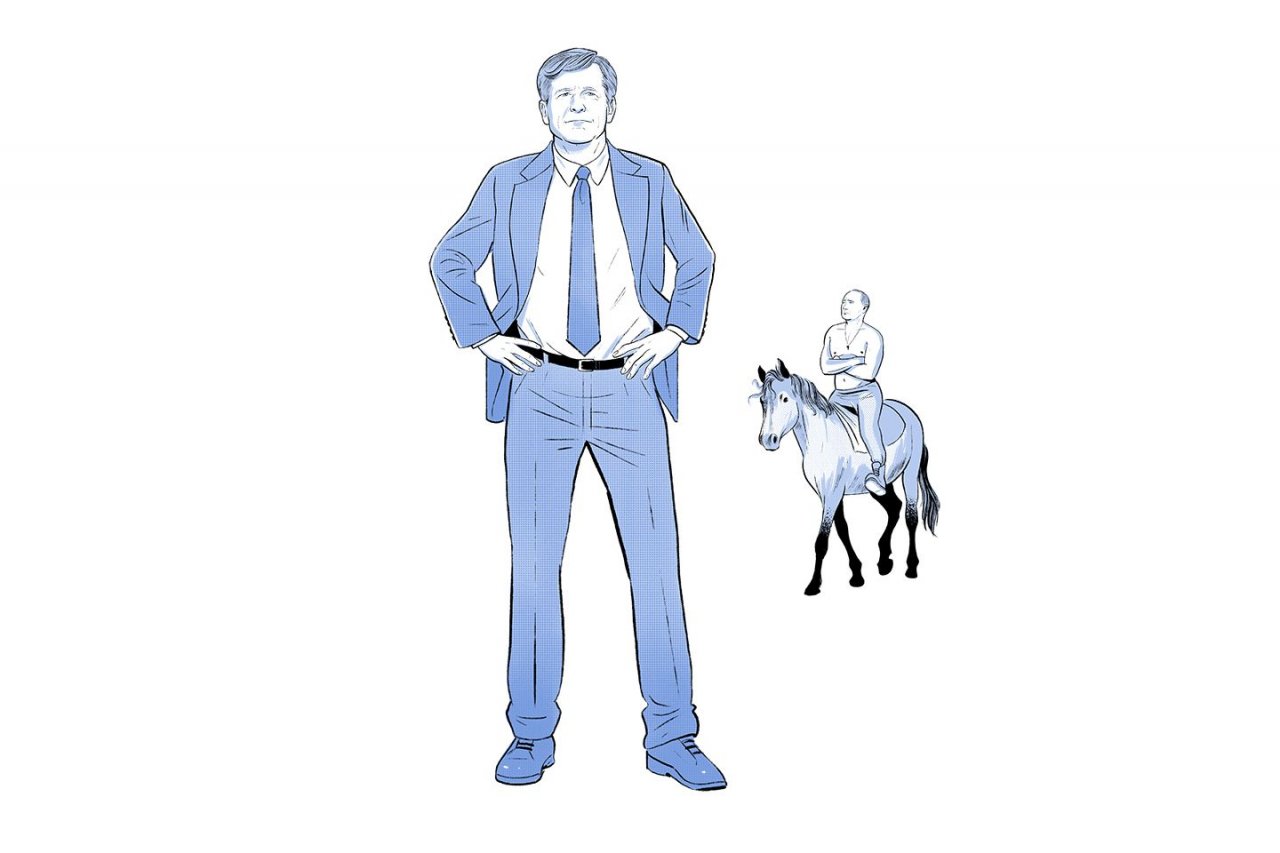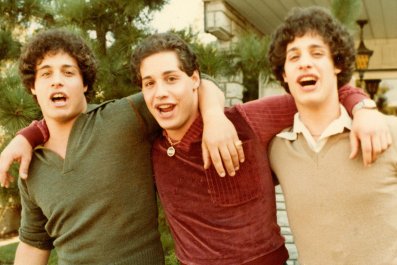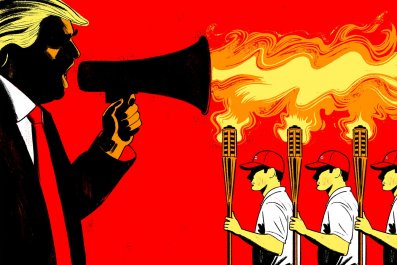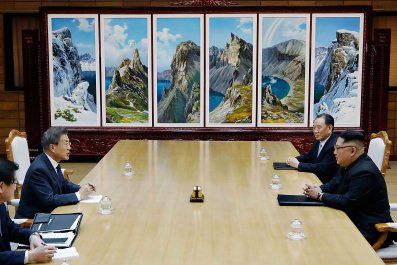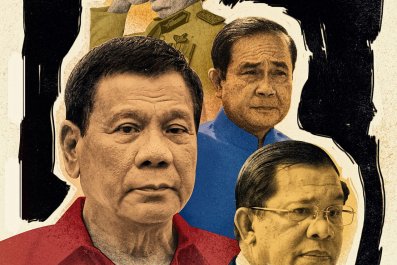Michael McFaul was an academic expert in Russian studies when President Barack Obama tapped him to become the White House's point man on Russia in 2009. He was tasked with attempting to reset relations with Russia after its invasion of neighboring Georgia. But soon after he was appointed as ambassador, Vladimir Putin accused the U.S. of being behind mass demonstrations opposing his third term as president. McFaul quickly became a hated figure in Russian media, and nationalist youth groups physically harassed him after he met with representatives of the Russian opposition.
By the end of his ambassadorship in 2014, Russia had invaded neighboring Ukraine, leaving the reset in tatters. McFaul, now a professor of political science at Stanford University, has been a vocal critic of President Donald Trump's ties with Russia. His new book, From Cold War to Hot Peace, is a revelatory history of Russian-U.S. relations since the collapse of Communism. As Trump and Putin prepared for a planned one-on-one summit in July—news that rattled European and American officials alike—Newsweek spoke to McFaul about Russia's role in Trump's rise, Putin's continued aggression and how Washington's policies are helping him get stronger.
Where did the U.S. go wrong with Russia? Was it being too soft on Putin after the 2008 invasion of Georgia?
Your question assumes that all problems in U.S.-Russia relations are our fault. It was Russia that invaded Ukraine and Georgia—the onus of who is at fault is with their policies. What other policy would have led to a better outcome? I was [in the Obama White House in January 2009], and we walked through the other possibilities. Georgia joining NATO was not an option. There was no appetite for a proxy war with Russia in the Caucasus. There was no clear-cut alternative approach that would have avoided confrontation with Russia later.
Were the sanctions following the annexation of Crimea effective?
No. Putin hasn't changed his behavior. But was it the right thing to do? Yes. There had to be a response to annexation. Could there have been more comprehensive sanctions? Possibly, but it's doubtful they would have made a difference. Sometimes, you have to do the right thing regardless of consequences. And there have been consequences: Sanctions knocked half a point off Russia's GDP.
So sanctions are a symbolic policy without any real effectiveness?
If there hadn't been any sanctions, then Putin might have pushed on with his project [to annex more of Ukraine]. So they possibly stopped him from going further than he did. We know from other historical cases that the effect of sanctions is measured in decades, not months and years. Russia is a big country that's not dependent on the international system, so it may take longer to see an impact. But there have to be negative consequences for negative things. There has to be a punishment.
Is there any substance to the allegations of collusion between Russia and the Trump campaign?
The answer is obviously yes: Putin helped Trump win with his hacking, his propaganda and his disinformation platforms. That's as clear as day to me. When [official Russian news agency] Sputnik retweets #CrookedHillary, you don't need a Ph.D. in Russian studies to understand what side of the fence they are on. Did the Russian government send emissaries to try to offer up materials to try to help Trump? It's obvious that was the intention. Was the Trump campaign's intention to receive that information? Yes, of course. Was a law broken? That's a different question. We still need to know more about financial relations between Russian proxies and members of the Trump campaign; that's the biggest uncertainty that [special counsel Robert] Mueller has to dig into.
Has the Trump administration been soft on Russia?
The administration, no. Their policy is one I generally support. There's a lot of continuity with the Obama administration, and in many instances—such as lethal assistance to Ukraine—they have gone further. But what is missing is the president himself. He often disagrees with his own administration's policy; that's the paradox of this moment. So when [Trump] said that we should reconsider Russia joining the G-7, that was not an administration policy. They didn't have an interagency meeting and decide, "That's a good idea. Let's roll it out." Trump has said he thinks sanctions are a bad idea, yet his administration continues with them. They have two policies towards Russia, not one.
How will Trump's scrapping of the Iran nuclear deal affect U.S. standing in the world?
New sanctions [on Iran] are difficult to do multilaterally. They're almost impossible to do alone. We, the U.S., are now the ones who are isolated, not the Iranians. [The Obama administration] put a tremendous amount of effort into isolating Iran to get them to negotiate. Now, it's the opposite. And Putin is in a win-win situation. If the Iran deal keeps, Putin looks like he is [in] an alliance in the world looking for denuclearization. If it falls apart, everyone will blame Trump.
Will the victory of pro-Putin governments in Hungary and Italy mean the end of European support for sanctions against Russia?
Getting renewal of sanctions has required a lot of trans-Atlantic unity. [Trump] signaling that he wants to "get beyond that matter" is a bad signal. And getting into a spitting match with our closest allies about rather trivial things? That's going to make it even harder to keep the coalition for sanctions together, no doubt about it.
Would you say that Putin is happy that Trump is now president?
Yes, without doubt, if the alternative is President [Hillary] Clinton. But the Russians didn't get the initial return they were hoping for, let's be clear about that. They hoped the new president would come in and lift sanctions; after all, that's what candidate Trump said he was going to do. That did not happen. But over the long term, the tension you see in the trans-Atlantic relationships, the tension you see within NATO, disunity within the G-7, the arguments we are having within our own country, the withdrawal of the U.S. from key agreements like the Paris climate deal, the Trans-Pacific Partnership, the Iran deal—those are all things in Putin's interest. The world looks pretty good from his point of view.
Add to that the [reports of] how societal attitudes among our allies are changing. Polls show that among seven European allies, plus Japan and South Korea, more people trust Putin than Trump. That is alarming.
What's the next step for Putin?
He always believed that he would have more patience than the West on Ukraine, that we would eventually get sanctions fatigue and want to get back to business. And I think that history has proved that Putin was right. Radical governments in Hungary, Italy—plus everyone who showed up at the St. Petersburg [International] Economic Forum—are saying, "Let's just move on." And Putin doesn't need to put any more pressure on the trans-Atlantic alliance because Trump is doing that already.



